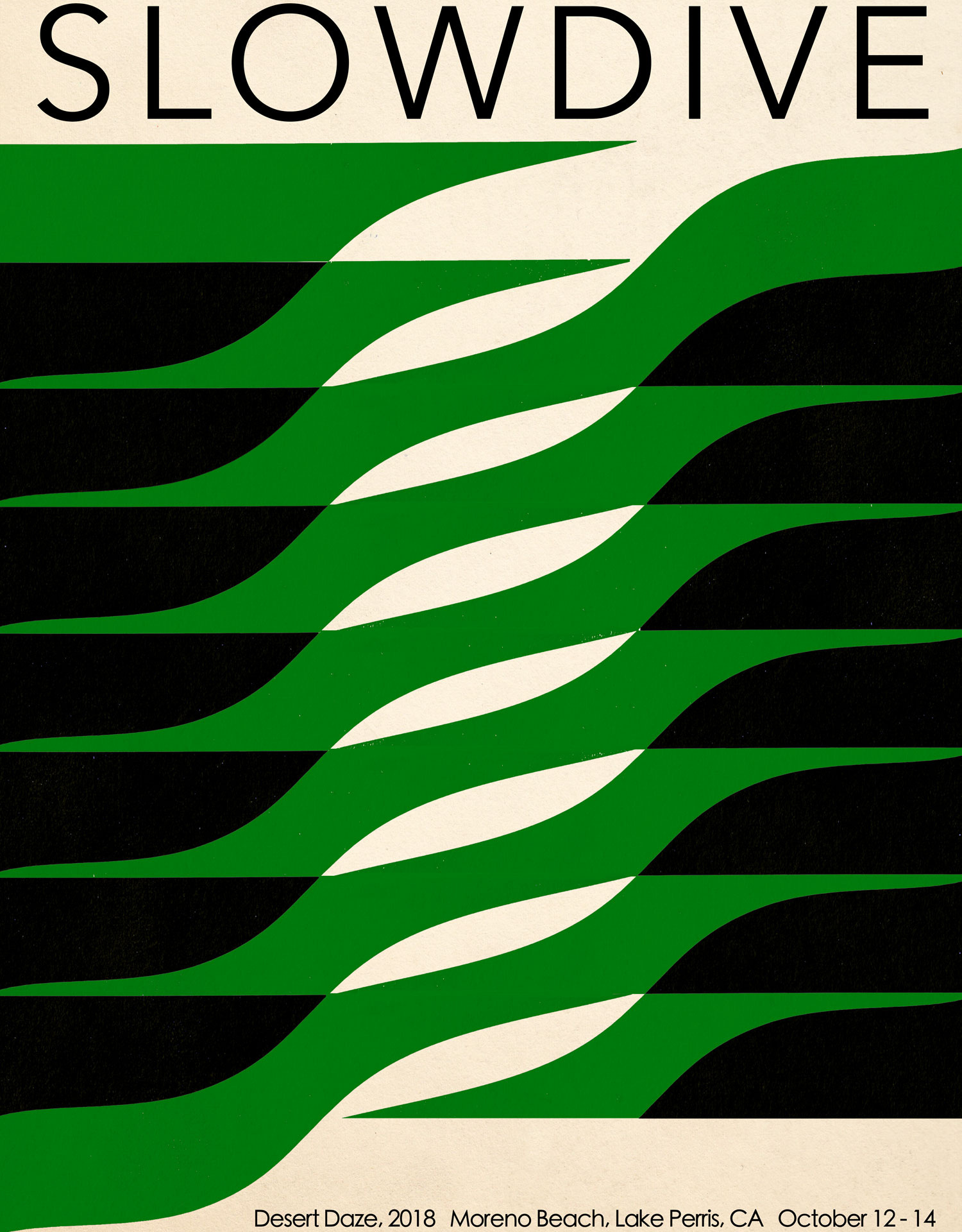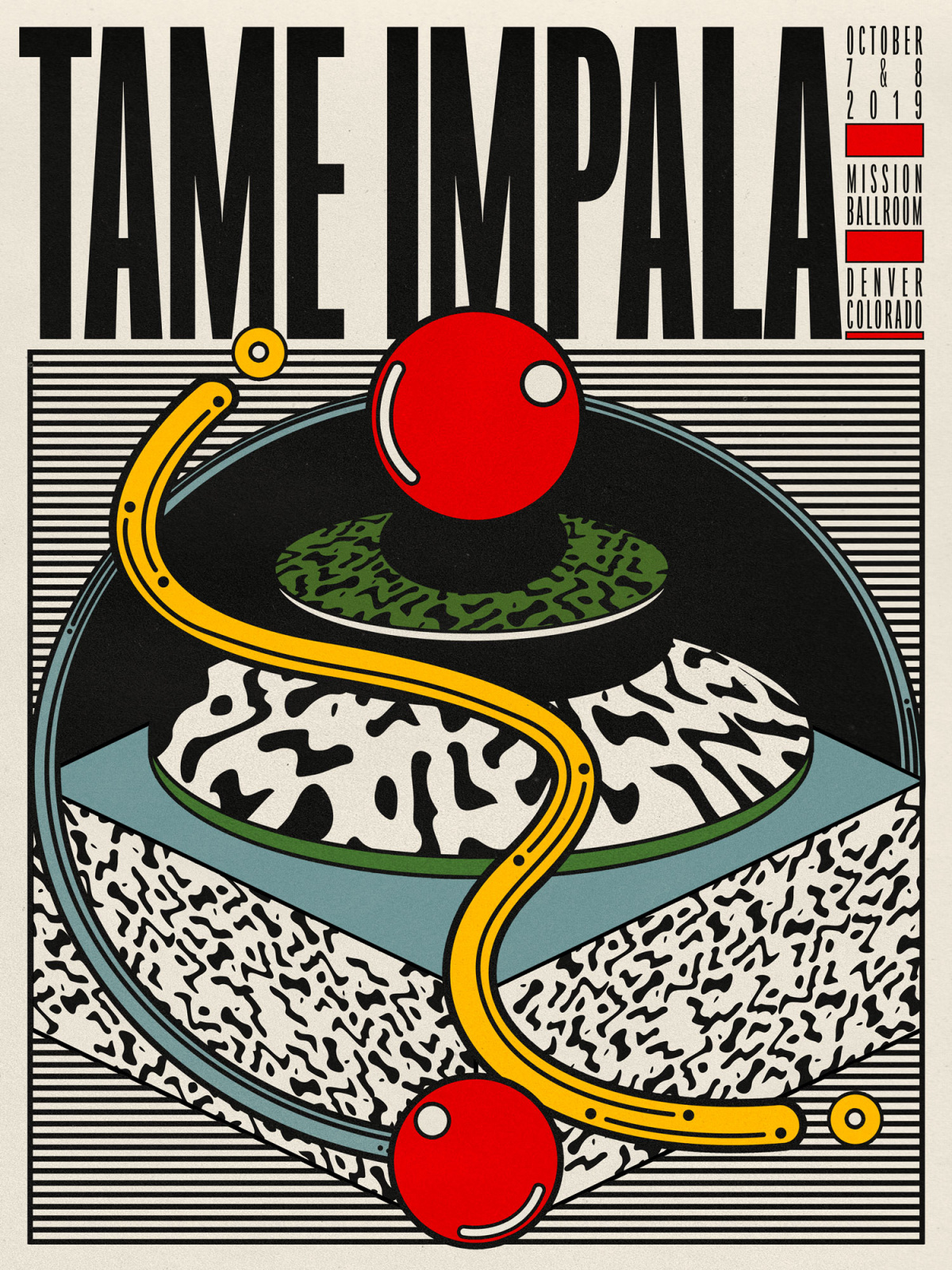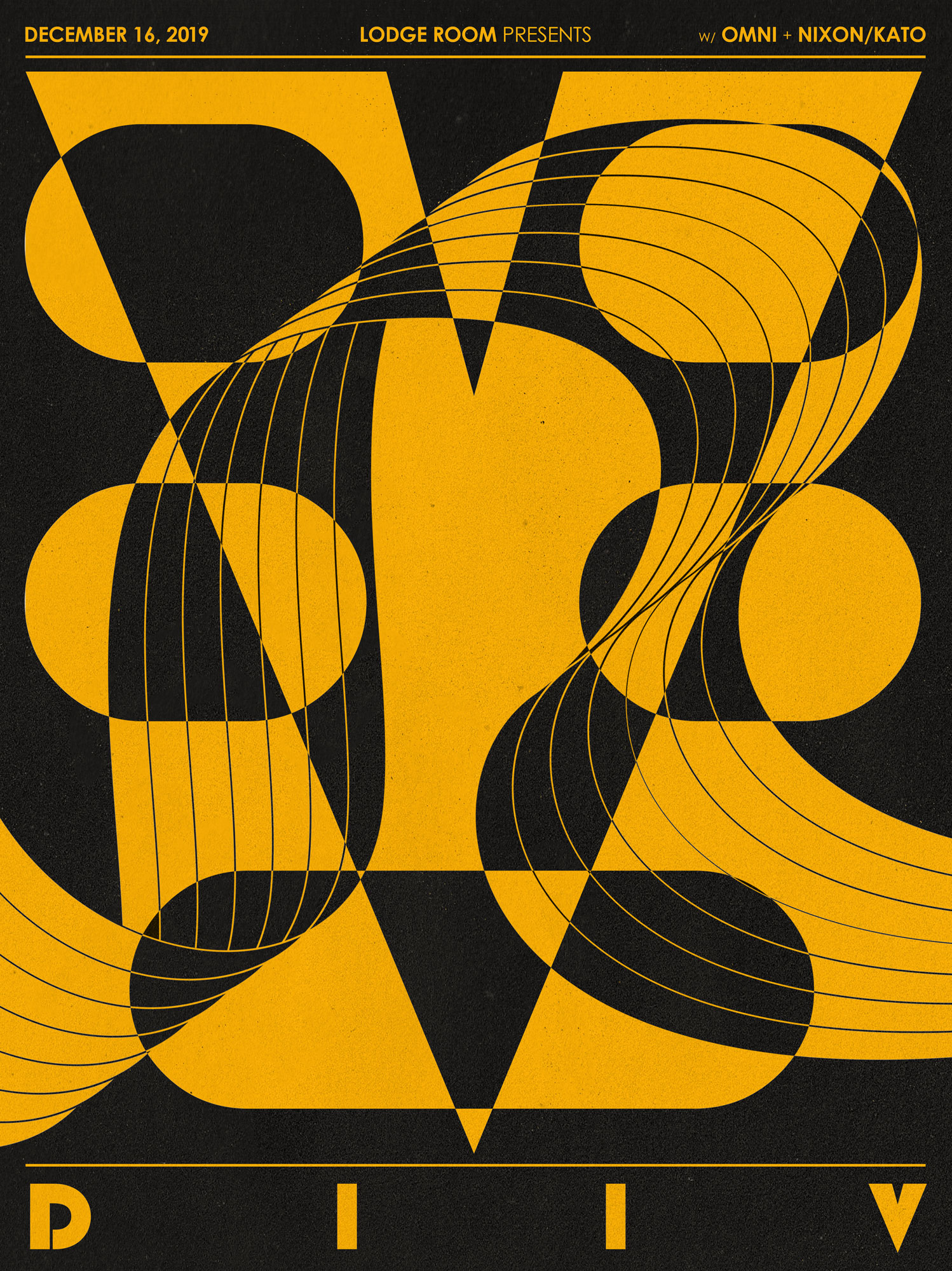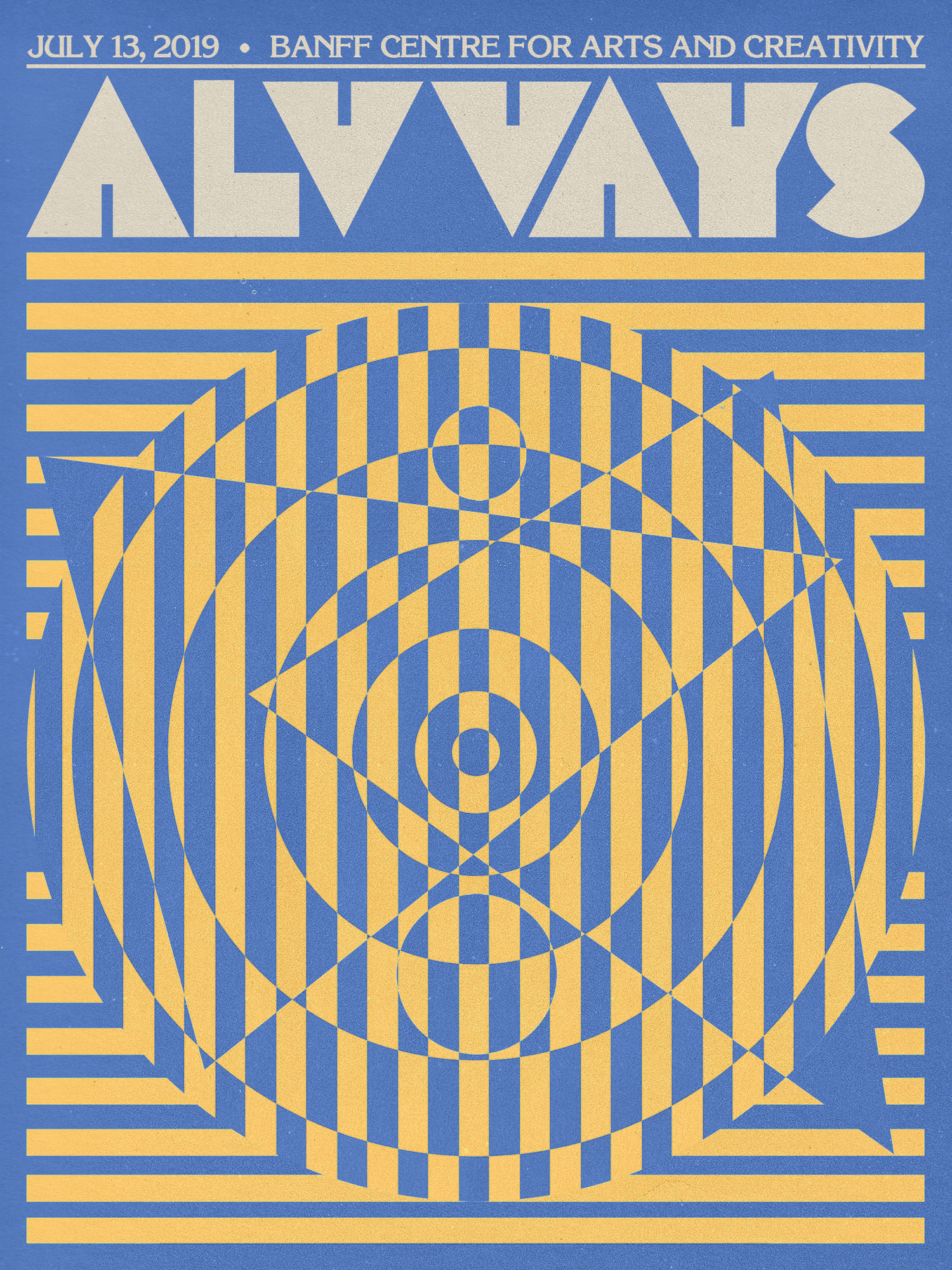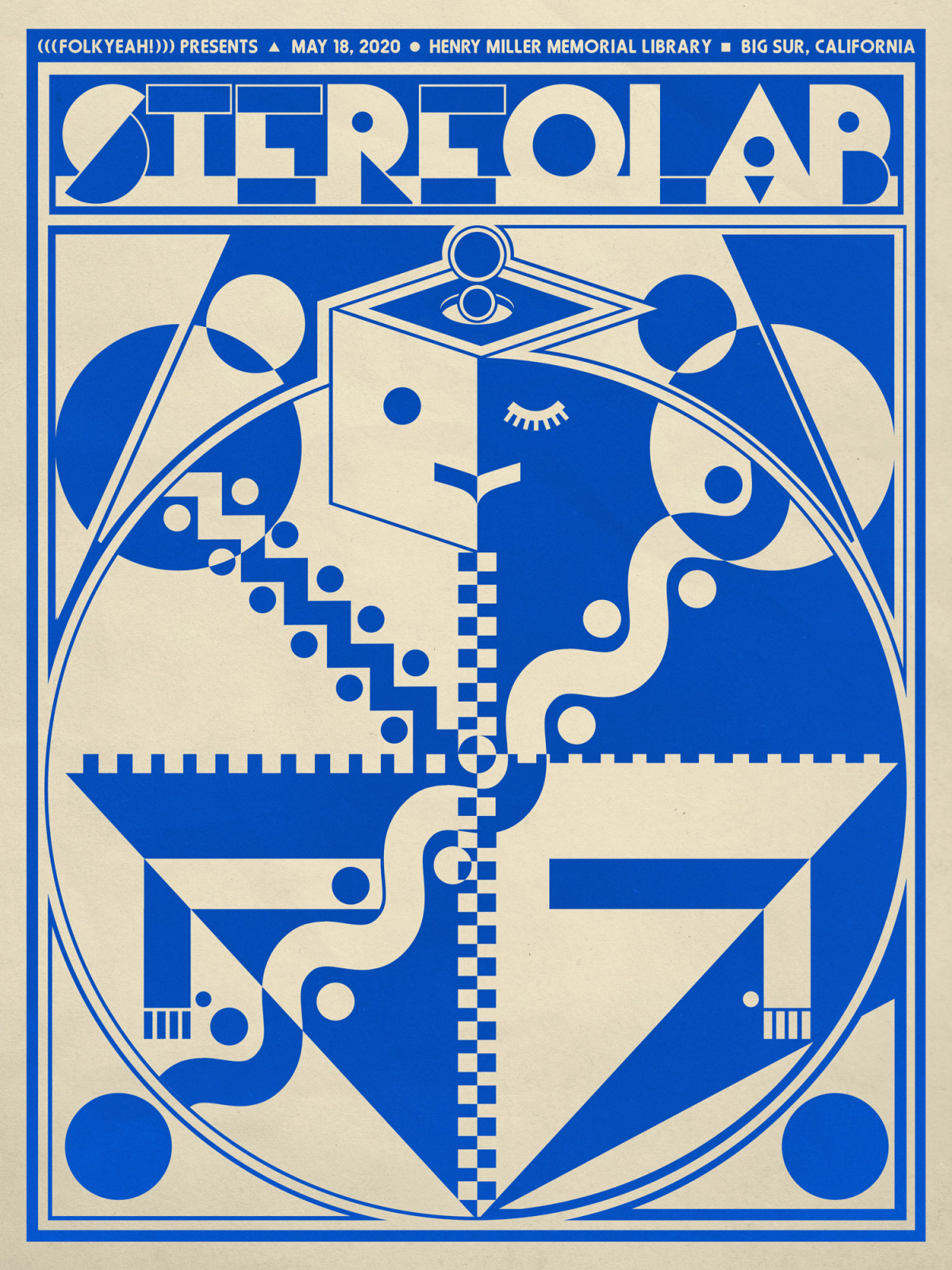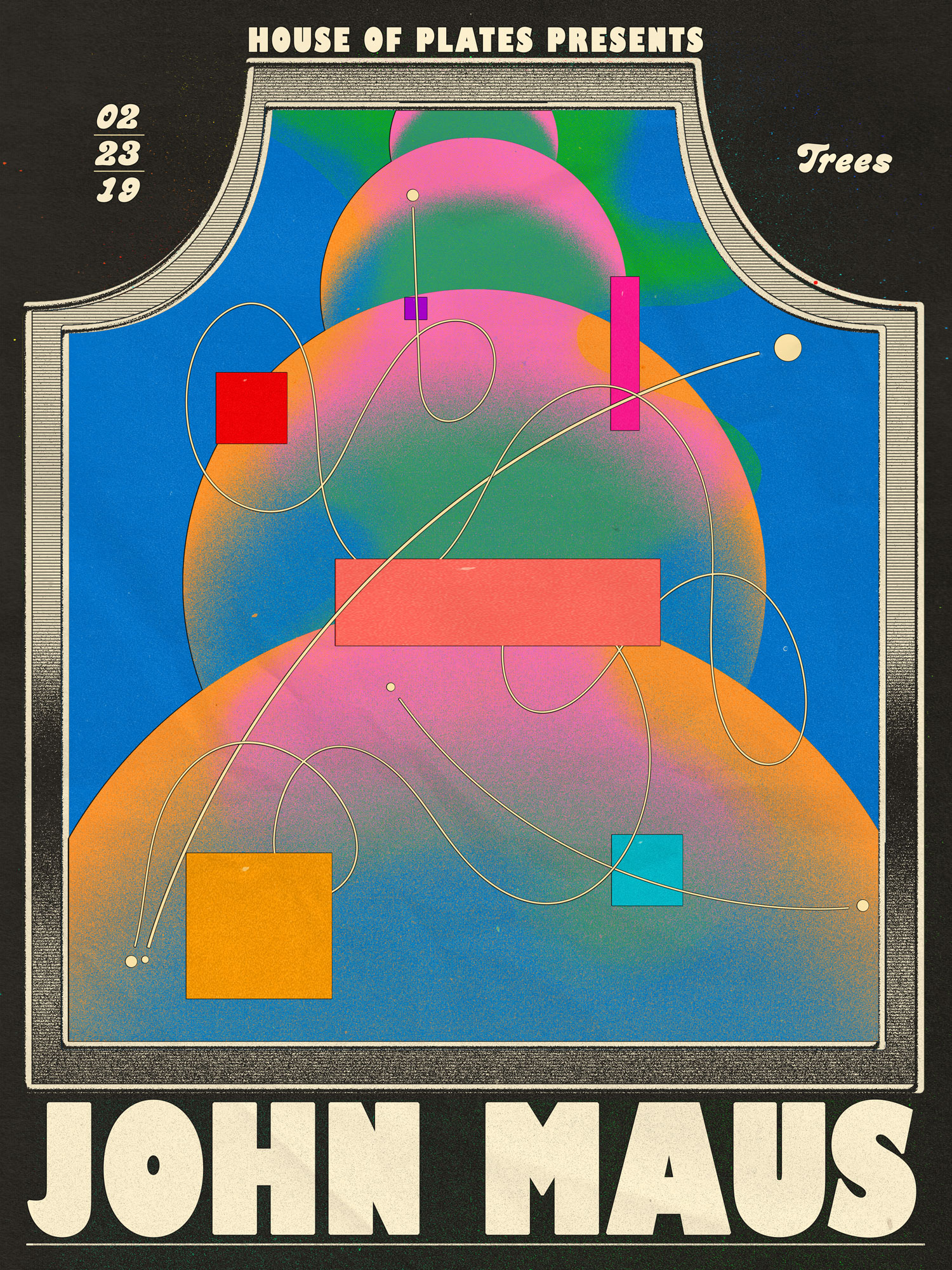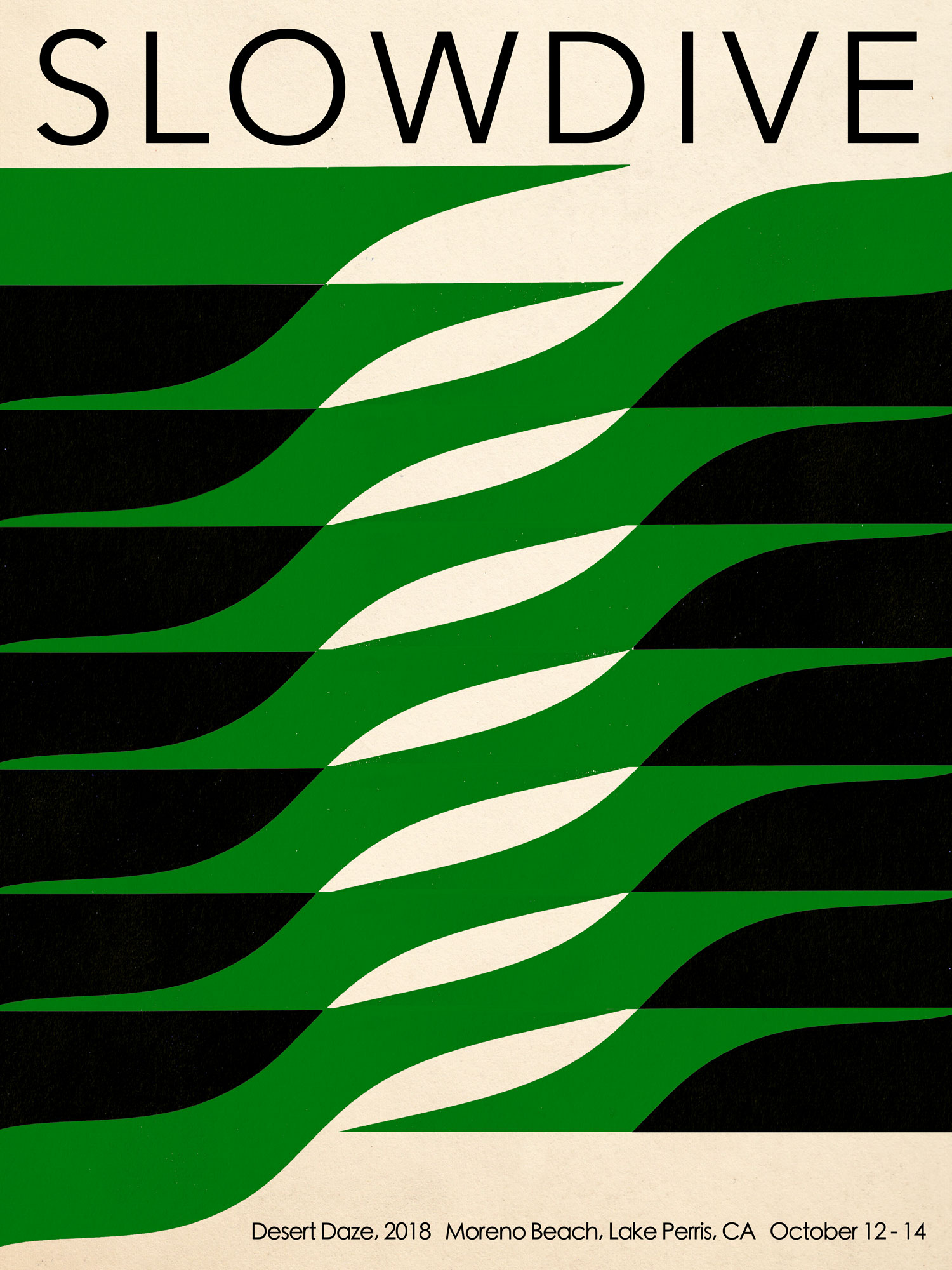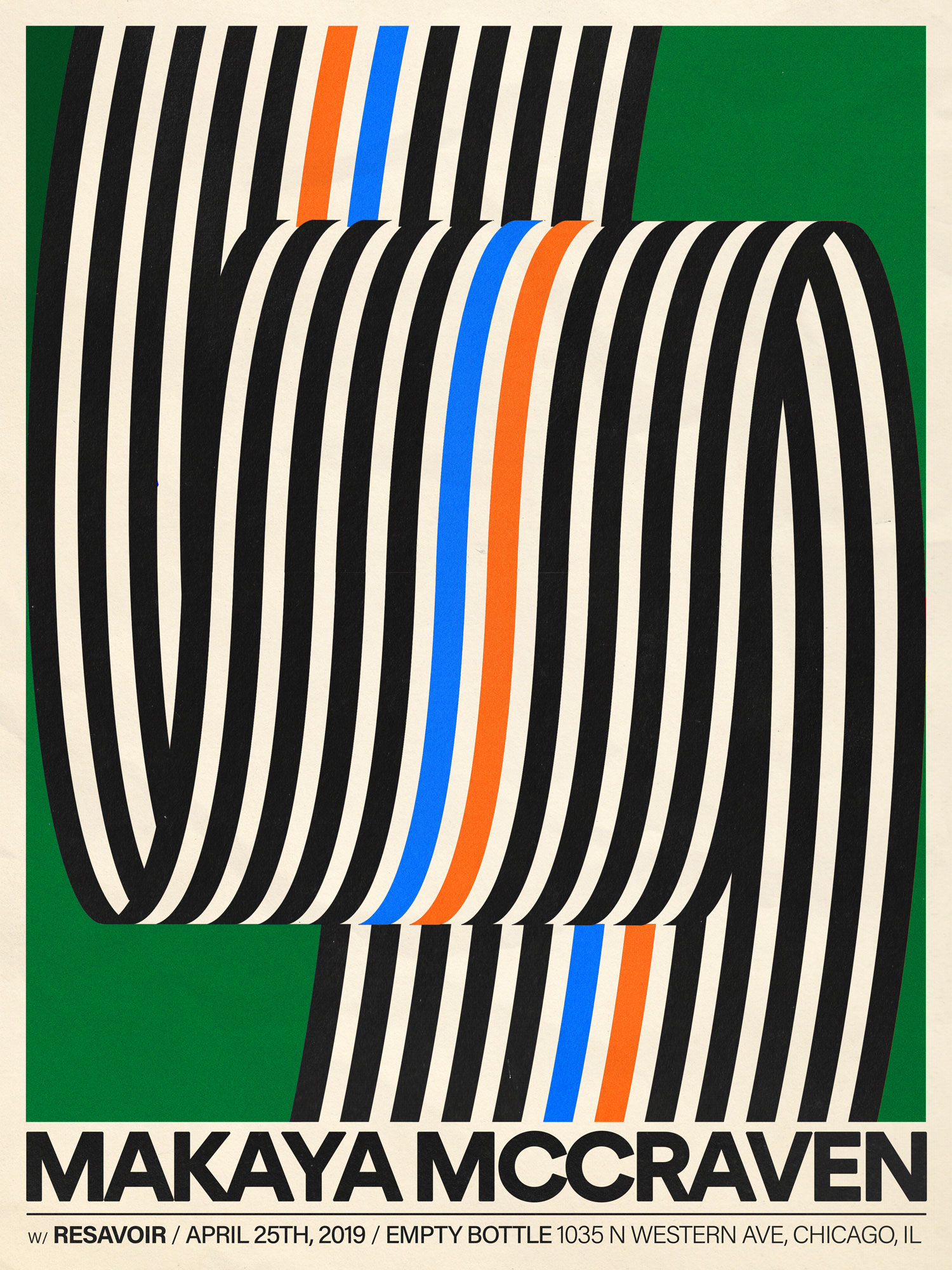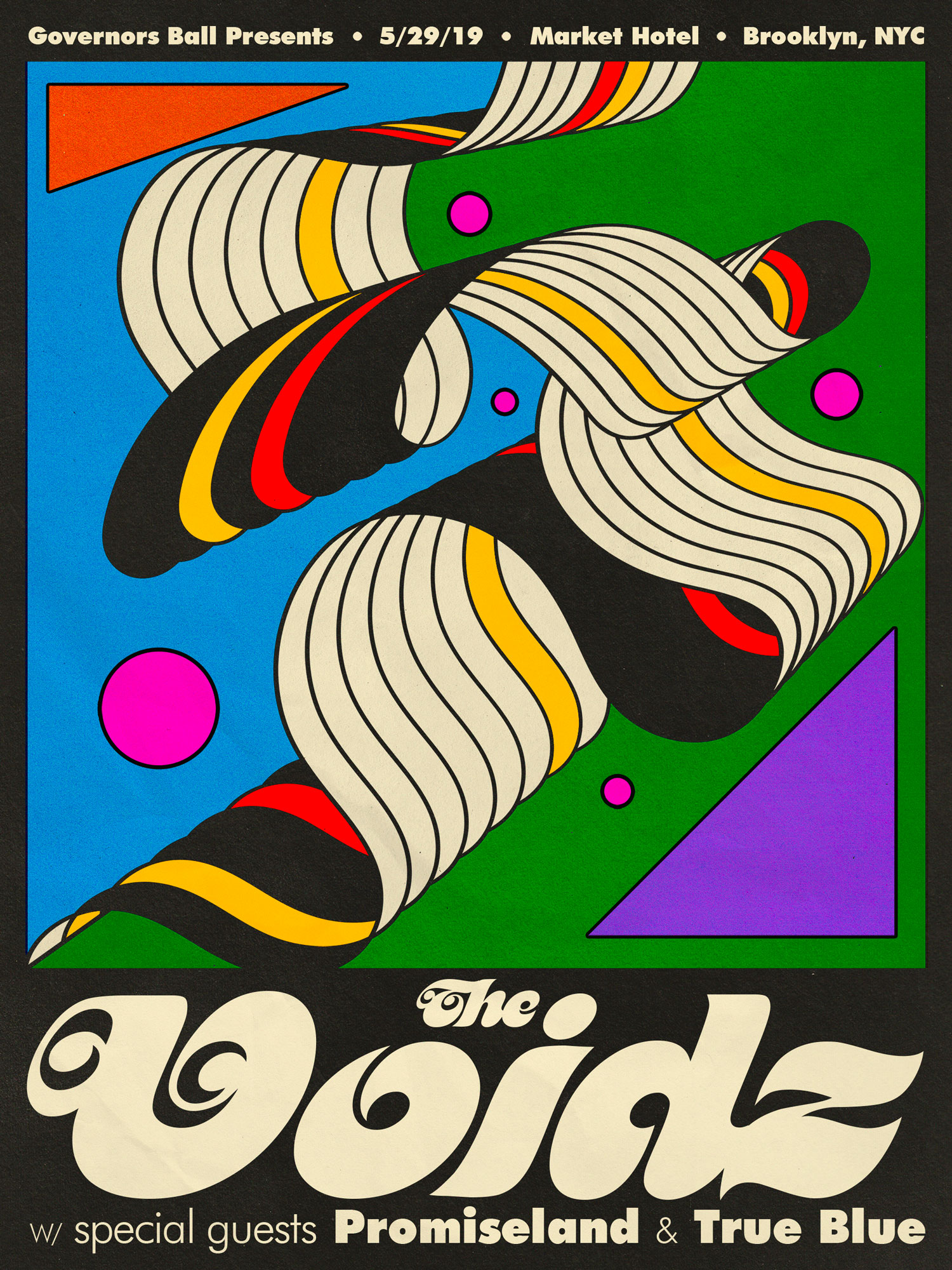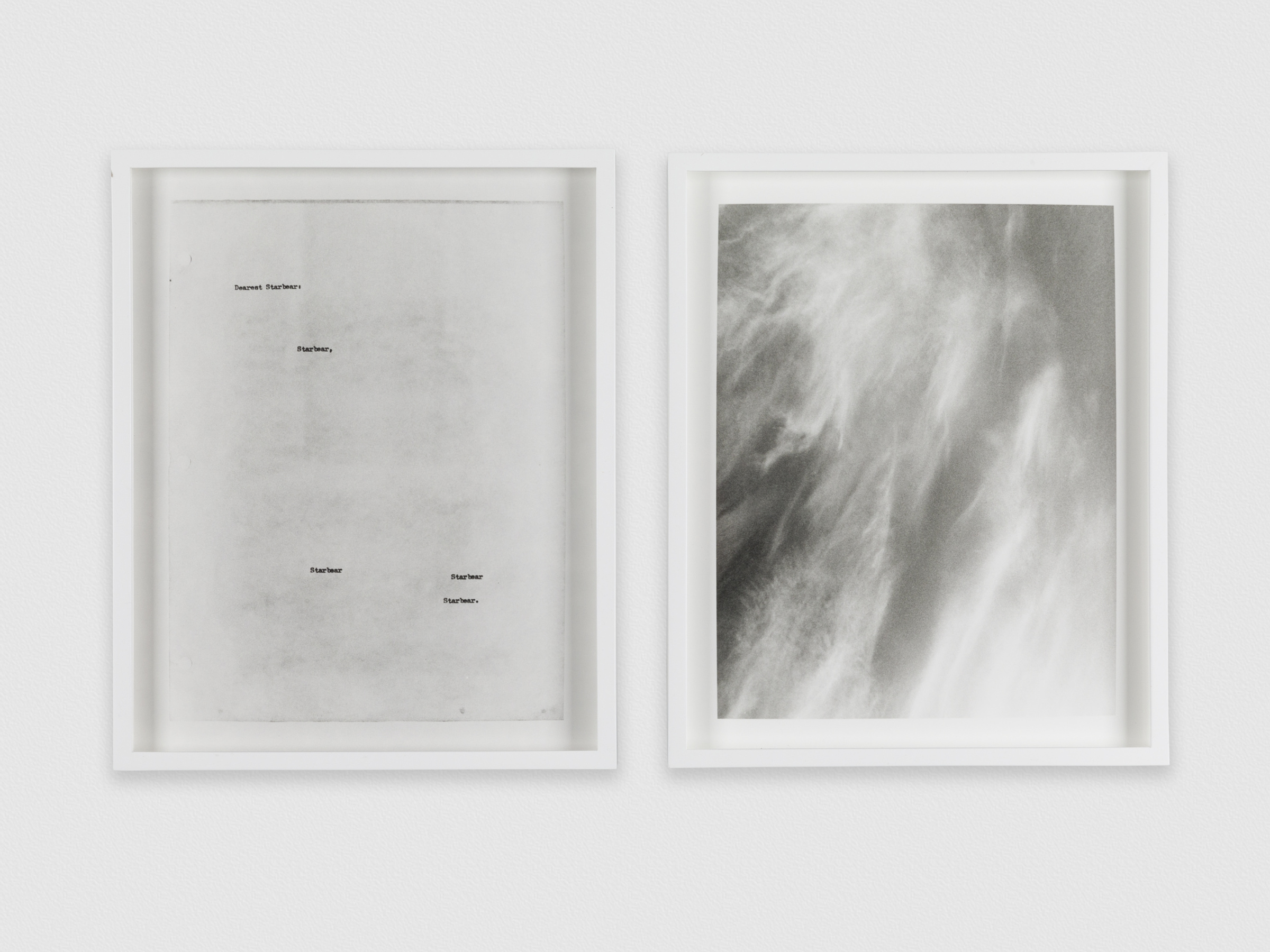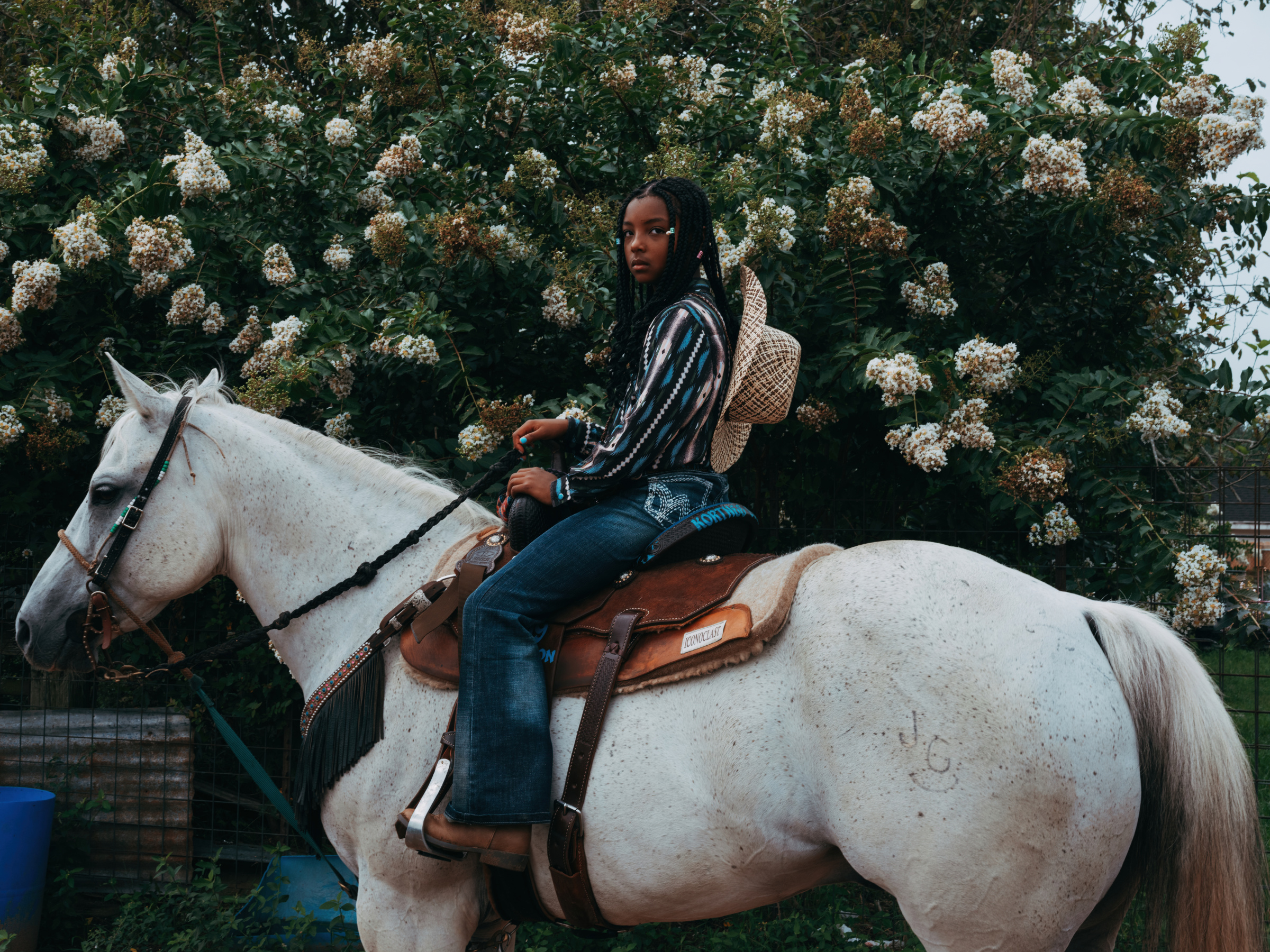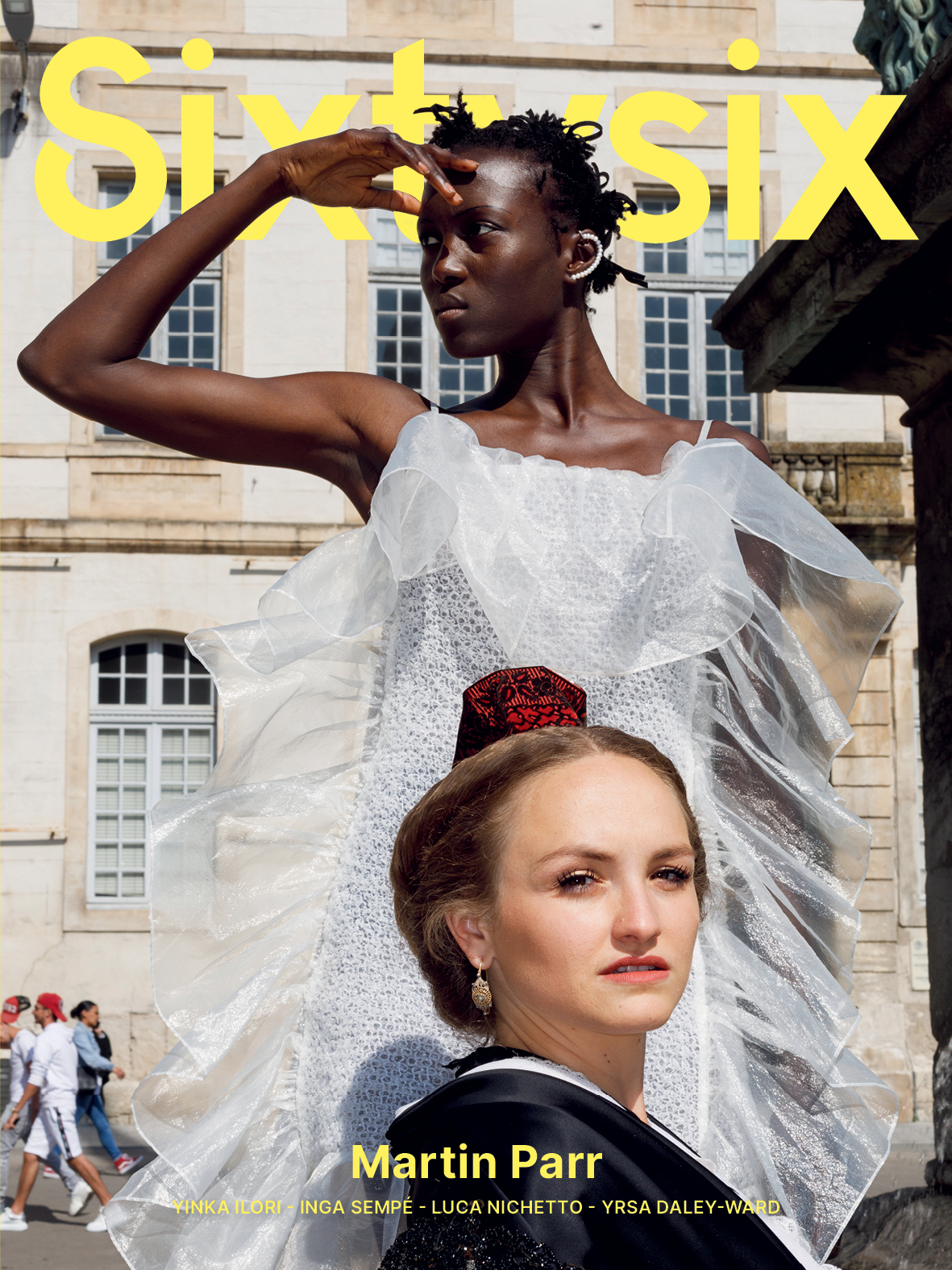Designer Aaron Denton is inspired by minimalism, modernism, and easy living. Since he started freelancing full-time in January 2018, he’s used these influences to create hypnotic band posters and album covers from the comfort of his Bloomington, Indiana home.
The two years Aaron has dedicated to developing his craft have served him well. It’s a happy alternative to his previously chaotic 70-hour work weeks, when he juggled restaurant jobs with design projects. Now the 29-year-old takes each day as it comes—happy doing something he never thought he’d do full-time.
For Aaron, living slowly means sleeping in with his fiance (also a full-time freelancer), eating a big breakfast, and leisurely picking up around the house. Work begins around noon and continues for a few hours until Aaron takes a break for food and errands. Then it’s back to the computer until 2am, when his eyes become tired and he begins to lose perspective. He falls asleep watching The Sopranos.
“It’s a bit embarrassing,” he says. “At noon I have all the emails I’m going to get for the day. I work when I’m not being bothered the most.” This means he has time to carefully listen to each band before he starts a poster. He answers every email, whether it’s a reject commission, a fan requesting a sold-out poster, or a student asking to interview him for a class project. He has visions of someday working in a more traditional studio setup where he can play with new mediums and have the space to really make a mess creating something big.
- When he started this poster for Tame Impala, Aaron swore he wouldn’t incorporate an orb because of its notable inclusion in Robert Beatty’s artwork for the band’s album Currents. Aaron realized he’d included four orbs when he finished the poster, but he loved the design anyway.
Aaron went to Indiana University, studying English literature for two years before fulfilling requirements with some art history classes that ended up leading him to a new degree. He dabbled in Photoshop and Illustrator with his college’s free Adobe and, at the same time, booked local bands. He’s been playing music since he was a teenager and toured recreationally for his first two years out of school while making flyers for shows. When promoters started paying him to make posters for bigger concerts, he took to Instagram, where even more people asked him for designs.
These days Aaron does all of his work on his computer at home, finding inspiration anywhere and everywhere, revisiting Russian painter Wassily Kandinsky and Spanish painter Joan Miró when he needs to. His artistic process begins with messing with shapes, scanning paper to add texture, and experimenting until he’s satisfied. “I’ve been lucky that a lot of my favorite bands have asked me to do work for them,” Aaron says. “I sometimes feel like I’m born to do this.” We recently talked with Aaron more about how he’s developed his style, why he never wants to move away from rural Indiana, and what it’s like working from home every day.
When did you know this could be a long-term career for you?
I’m still coming to terms with that. There’s a bit of imposter syndrome involved, especially when you start getting paid to do things you’d do anyway. It’s only been the past couple months when I’ve started saying no to commission inquiries more than yes.
- Concert poster for DIIV by Aaron Denton
- Concert poster for Alvvays by Aaron Denton
Do you have more commission requests than you have time for?
I was usually tangentially a part of the group or scene of the people who asked me to do things. Then it started to get a little outside of that. Strangers would hit me up. I always try to respond to everybody, and 90% of my work is in the music industry. There are a lot of inquiries, but I don’t want to get involved in a project I don’t like or that I don’t feel something for.
How does the commission process work?
Every commission is different. The music industry is more like, “We need this thing immediately.” The turnarounds can be intense. It depends on each project and the extent of it … A big part of my life is posters. Those are fun because when someone commissions a poster from you, they’re not art directing a poster. They allow you more freedom. I like to have around two weeks to work on them. That usually means I have other projects happening. It’s fun to daydream on a project. I do a lot of thinking, “What does this band look like to me?”
I’ve also been doing album artwork and LP layouts and logos. That stuff doesn’t get seen. I’m not posting a lot of that stuff on Instagram because it’s such a collaborative work. That side of it is a completely different brain, more discipline and pleasing a client, trying to understand what they’re about, and providing options for them. It’s nice having both going at the same time. There’s only so much creative juice you can expend on something, and it’s nice to have other work.
- “I had recently gotten this book called Applied Typography. It’s from 1991, but it’s a hodgepodge of Japanese designers and logos,” Aaron says. The Stereolab “commission came up, and it was like, ‘this style would be perfect for this band.’ I had other commissions I could’ve used it on, but I was waiting. A lot of my work is me finding inspiration and influences in different places and then waiting for the right project to use them on.”
What’s the feedback process like with clients?
That depends on who you’re working with. I spend so much time on posters. I look at them as an opportunity to float across visual ideas I’m having. It’s way more of a feeling thing. You can sense when a poster is getting close. You start making changes and you’re like, “It’s not getting any better,” and you’ve exhausted an idea. It takes a long time. It’s also about showing yourself as many options as you think necessary. Typically with posters, I don’t get too many people saying, “Let’s change it.” The turnaround is so tight that, if I can give them a competent idea I’m proud of, it usually works out.
With album artwork, you have to be a little more contemplative about the front-end of the commission. I’ve always been hesitant because I work abstractly. I work in the moment and intuitively. But lately I’ve been more respectful of the idea that you and the client have to agree on a general idea. It has to be concrete, especially when it’s more than an event poster, it’s a movie poster or an album artwork. There’s more at stake. You have to be sure they’re down for the vibe you’re going to start going for.
- John Maus poster commissioned by House of Plates.
- Aaron screen printed the Slowdive show poster in a two color print.
How did you find your style?
I’ve heard other artists and musicians say this, and I definitely relate to it: If you are consciously thinking, “Is this design with my style?” then you’re incapable of having a style. You’re consciously molding what you do to be cohesive with everything you’ve done. Pretty routinely, I do things and feel like, “This is a completely new thing to me.” But I’m realizing what’s new to me is really subtle. I’ll do small things differently … Friends of mine will text me photos of a poster like, “I think you did this.” That’s cool, but I’m also still amazed that happens because I don’t see myself having a specific style.
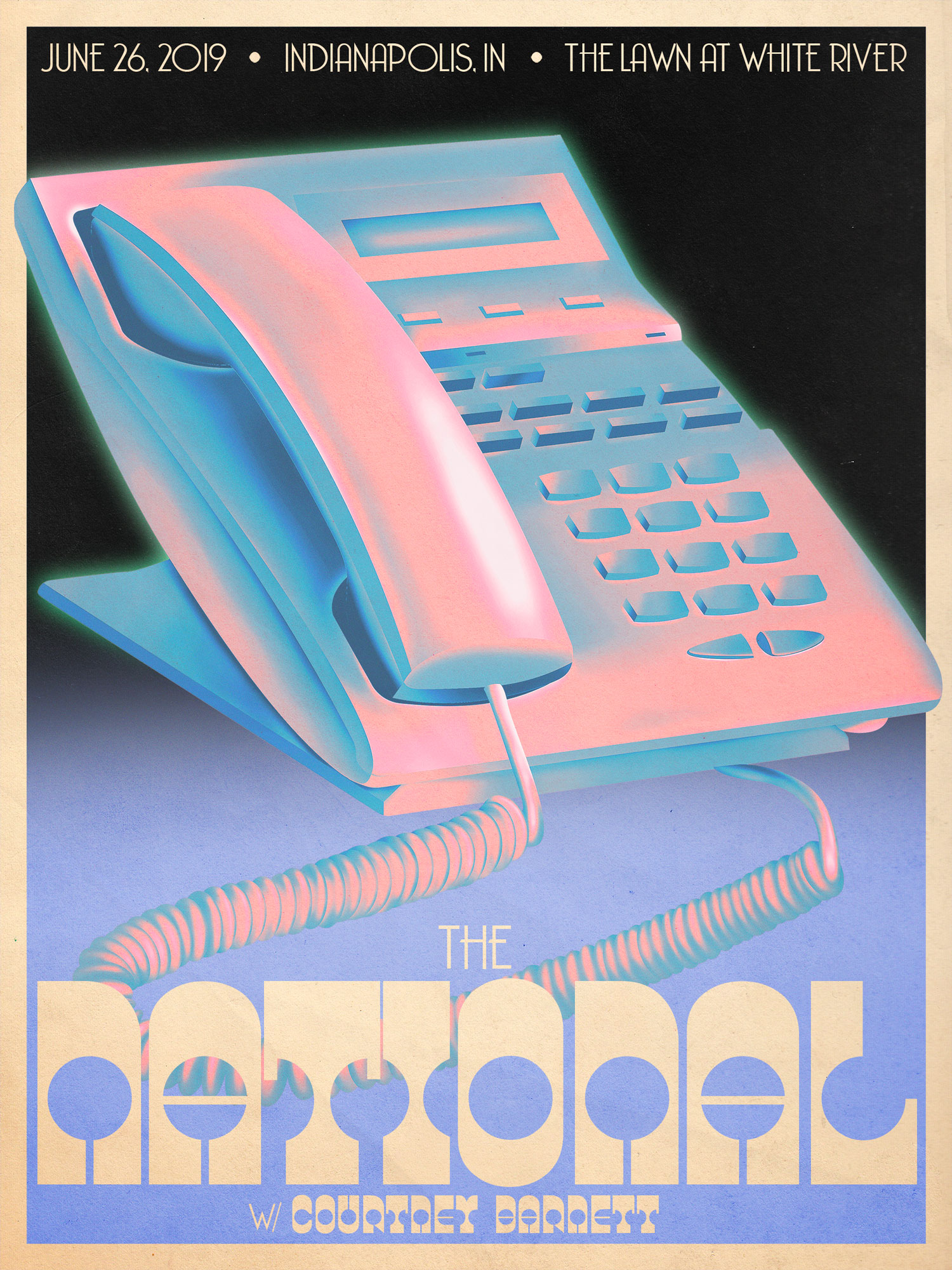
The National released a 25-minute video accompanying their 2019 album I Am Easy to Find. The short film consists of 150 moments set to songs from the album. One of these moments includes the phone that inspired Aaron to create this poster for the band, which took him about 15 hours to complete because he was using an airbrush technique he’d just learned for the first time.
Tell me about your studio space.
I work from home. I live in Bloomington, Indiana. It’s a mid-sized city. IU is here. Me and my fiance both went to school here and stayed after. I’ve been living here for 10 years. We moved into this house on the outskirts of town. It’s technically outside the city limits, so it’s rural Indiana. At one point, all of the neighbors around me were named John, and they were pretty much all the same old dude.
Would you ever move to a bigger city?
That’s a conversation I’m lucky to be aging out of … If something came up like a job opportunity, that would be one thing. But I have never thought it wise to just move to a city. We love visiting cities, but I like the pace of Bloomington. The things that drive people away from college towns and smaller towns are the things that kept me here, which is essentially that life is really easy. My living situation is unique. My rent has been really cheap for the past five years, which was helpful to my freelance career early on. Doing things here, in Bloomington, is super easy. For example, I started selling some of my posters, like artist prints I get. I can fully do the distribution of that myself, no problem, because it’s easy to get places in Bloomington and get stuff done.
That has allowed me a lot of time to develop my craft and spend time on it instead of working 35 hours at a restaurant or having a few jobs to pay the rent. Then it’s like, “I’ll do creative work at some point.” That’s the struggle a lot of people I know have. They know they’re creative people, but they don’t give enough respect to that side of themselves to hand over the hours to develop a craft. The amount of work I’ve been doing and the complexity of it has gotten a lot more intense in the past year or so.
“I don’t ever feel bored or unfulfilled here. I need the rest of my life to be practically easy so I can spend more time doing work.”
How do you accomplish that balance working from home?
It’s really hard. It’s been a bit dangerous as of late. A lot of my commissions are, “Do whatever you want,” which is great, but it is also creatively draining. I also like being challenged to do that. I probably work 50 hours a week, but I don’t work in the mornings … I’m able to slip away whenever I want, like if I want to leave the office and just go when I’m feeling unproductive. I’m good to myself in little moments like that.
I’ve worked restaurant jobs and I worked at a brewing company where it was like, “Be here at 10.” It doesn’t work for me. I’ve always been a night owl. I’ve always been most productive at night. Getting up and being somewhere, feeling guilty about stuff, this ambient sense of “I’m not doing good at my job because I didn’t get to the office at 10,” it’s stupid.
- Makaya McCraven for Empty Bottle
- The Voidz in Brooklyn
When you’re working jobs like that, you really feel it, and you avoid work. But I just leaned into it in my freelance career. When the sleepies get on me, I walk away. You figure out how productivity works with your body, which is not a luxury you have in the traditional workspace. I’m probably working too much. I’m aware that I’m entering into the most productive phase of my creative life. It’s something that’s freaky when you realize it. When you start getting paid to do your creative thing, you just have to do it because you never know how long it’s going to last. I’ve embraced that and try to do as much work as I can.
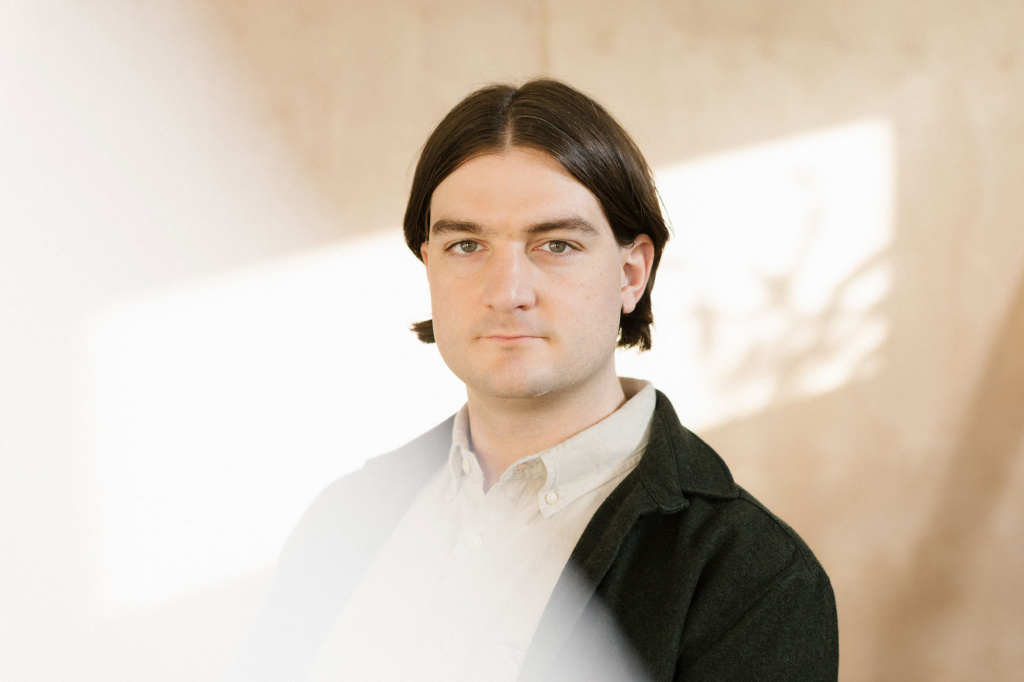
Portrait by Anna Powell Teeter
Artwork courtesy of Aaron Lowell Denton
